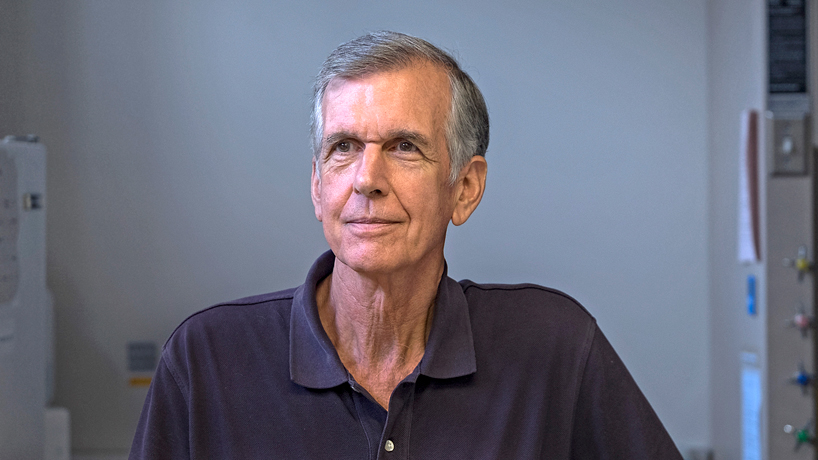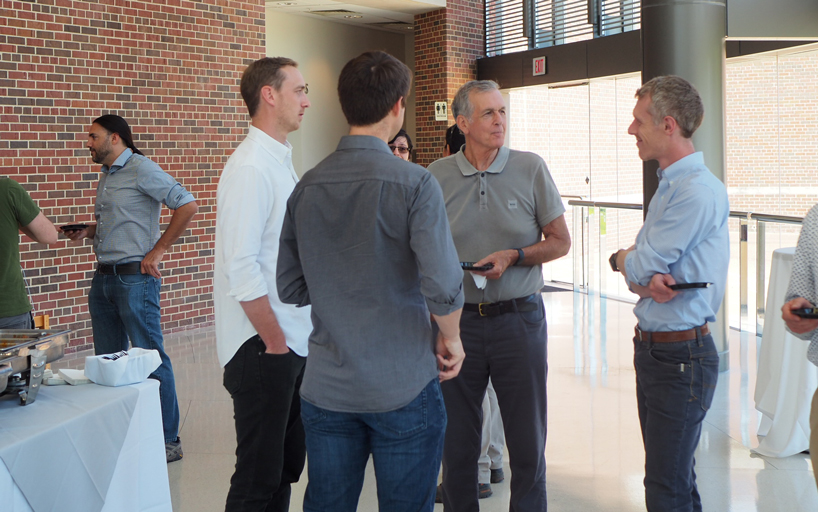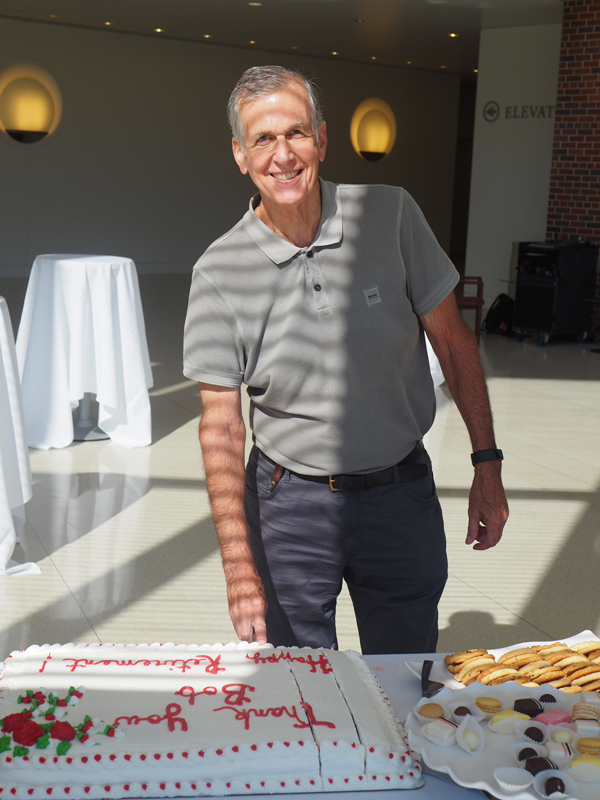
Curators’ Distinguished Professor of Biology Bob Ricklefs, a member of the National Academy of Sciences, is retiring after 24 years at the University of Missouri–St. Louis. (Photo by August Jennewein)
Bob Ricklefs has enjoyed an illustrious career that has taken him all over the world researching birds while also winning him acclaim as an author and inductee into the National Academy of Sciences.
Officially, he’ll retire at the end of this week after 51 years in academia, including the past 24 as a member of the Department of Biology at the University of Missouri–St. Louis.
Ricklefs is looking forward to fewer obligations and more flexibility in his schedule, especially with his wife, former UMSL Professor Susanne Renner, still serving as the director of the Botanische Staatssammlung München and a faculty member at Ludwig Maximilian University of Munich in her native Germany, as she has since 2003.
“I’m looking forward most to my wife and I being back together,” Ricklefs said earlier this month while sitting inside his office in Stadler Hall.
He expects he and Renner should also have more opportunities for travel.
But Ricklefs isn’t packing up his office, nor does he have plans to completely walk away from research or mentoring. Rather, he has accepted an appointment as a Curators’ Distinguished Professor Emeritus and will continue to advise two doctoral students.
Former students and colleagues gathered for a retirement for Bob Ricklefs (second from right) on Aug. 13 at the Blanche M. Touhill Performing Arts Center. (Photo courtesy of Clara Schmeiderer/Whitney R. Harris World Ecology Center)
That’s welcome news to the colleagues who celebrated his career and retirement with a reception August 13 at the Blanche M. Touhill Performing Arts Center.
“The good news is he’ll still be here,” E. Desmond Lee Endowed Professor of Zoological Studies Patricia Parker said. “He eagerly sought emeritus status and, of course, received it. He was very concerned about keeping his office, which of course, he’s been granted.”
She believes his continued activity and association can only benefit the department and the wider university.
“He has huge visibility,” Parker said. “Much of it comes from the fact that in his youth he wrote the textbook, ‘Ecology’ which has been translated into many languages and is the ecology text that many people use. There are two words on the cover of that big, nearly 900-page textbook – we all know it – and they are ‘Ecology’ and ‘Ricklefs.’”
That book and others – including “The Economy of Nature” and “Aging, A Natural History”– are just some of the ways Ricklefs has influenced new generations of biologists and conservationists.
Ricklefs’ own interest in biology and the natural world grew out of his childhood near Monterey, California, specifically with encouragement from a teacher who took him bird watching.
“I use that example a lot to emphasize the importance of childhood experiences,” Ricklefs said.
He would go on to study biology at Stanford University and earn a PhD in biology at the University of Pennsylvania. After a post-doctoral fellowship at the Smithsonian Tropical Research Institute, Ricklefs served as a faculty member at Penn for 27 years.
He’s studied bird life histories and avian disease on islands all over the world.
“Being in Antarctica was a real highlight,” Ricklefs said of research he did on growth and development of different bird species, including penguins and cormorants, in 1981. “It was unlike any place else in the world, and there was real danger there. That’s one of the experiences that is the most memorable.”
Ricklefs left Penn for UMSL in 1995, and he’s watched its evolution over the past two-plus decades.
“I wouldn’t say it’s changed, but the university has grown and become more impactful on this region,” he said.
His decision to come to St. Louis was driven, primarily, by the chance for him and Renner to work in the same department.
A noted botanist, Renner remained a part of the UMSL faculty for 10 years and was affiliated with the Missouri Botanical Garden, but the opportunity to serve as the director of the Botanische Staatssammlung München proved too good to pass up.
Bob Ricklefs cuts the cake at his retirement reception on Aug. 13 at the Blanche M. Touhill Performing Arts Center. (Photo courtesy of Clara Schmeiderer/Whitney R. Harris World Ecology Center)
Ricklefs and Renner have spent much of the past decade separated by an ocean with frequent trips back and forth, but his colleagues and students are grateful he never gave up his work at UMSL.
“For me personally – and I have said this out loud multiple times, so this is not a secret – but he’s been the best colleague of my career,” Parker said.
The two have worked closely together because of their shared interest in ornithology, regularly serving together on graduate advisory committees.
Emma Young, a doctoral candidate in his lab, had similarly high praise.
“He’s the best as a person,” Young said. “He’s just a really nice human being, which for someone who has done all of the impactful work that he has done for me was really unexpected. I was expecting to learn a lot in grad school. I wasn’t necessarily expecting that Bob would be so nice.”
His new position will allow him to continue to impact students and work with longtime colleagues, such as Parker and Bob Marquis, who is also retiring to an emeritus position.
“I’m not going to miss anything,” Ricklefs said, “because I’m going to be able to keep doing all the things I want to do and be around the department.”
















